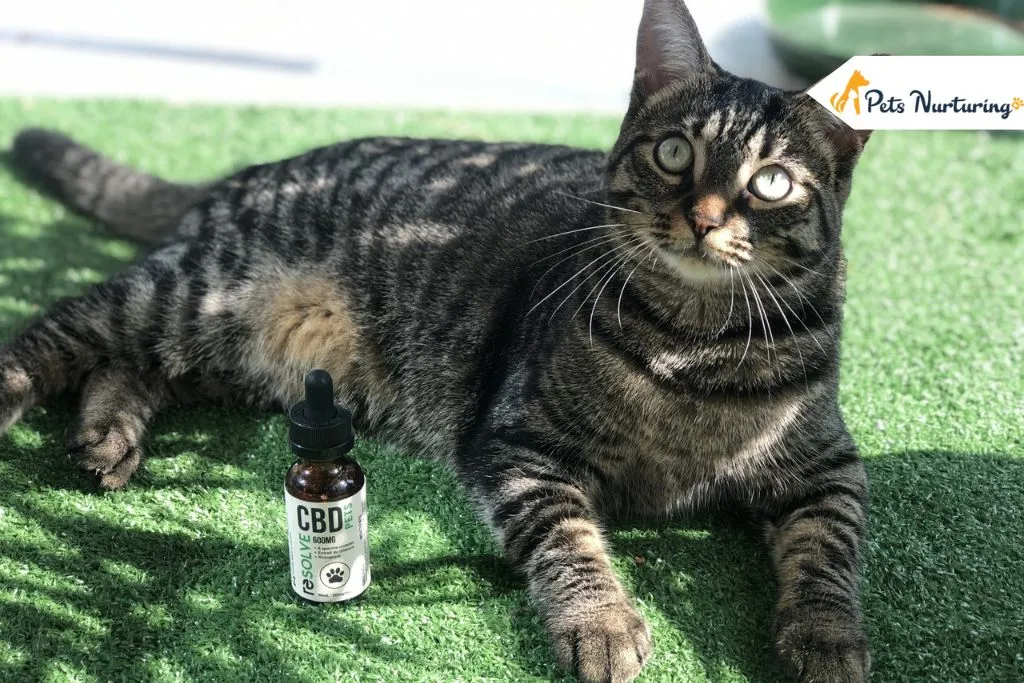
Cancer is incredibly sneaky, primarily because some symptoms are mild, while others are non-specific and could result from other diseases. On top of that, cats are notorious for concealing the symptoms of their illnesses. As a result, the problem may progress to an advanced stage by the time cancer symptoms appear, negatively affecting the treatment prognosis.
This article focuses on the signs and symptoms of cancer in a cat and examines how you can use CBD products to alleviate these symptoms.
Cancer in Cats: What You Need to Know

The American Cancer Foundation (ACF) claims that one in every five cats will develop a type of cancer at a certain point. Here are some well-known causes of cancer and the common disease varieties that affect beloved feline companions.
Causes of Cancer in Cats

Cancer is a complex and vaguely understood disease in humans and animals; its exact causes are still unknown. However, your cat’s age and carcinogen exposure are significant predispositions to feline cancer. Some of the most common carcinogens include:
- Food additives
- Pesticides
- Tobacco smoke
- Asbestos
- Benzenes
- Exposure to x-rays
Common Types of Cancer in Cats
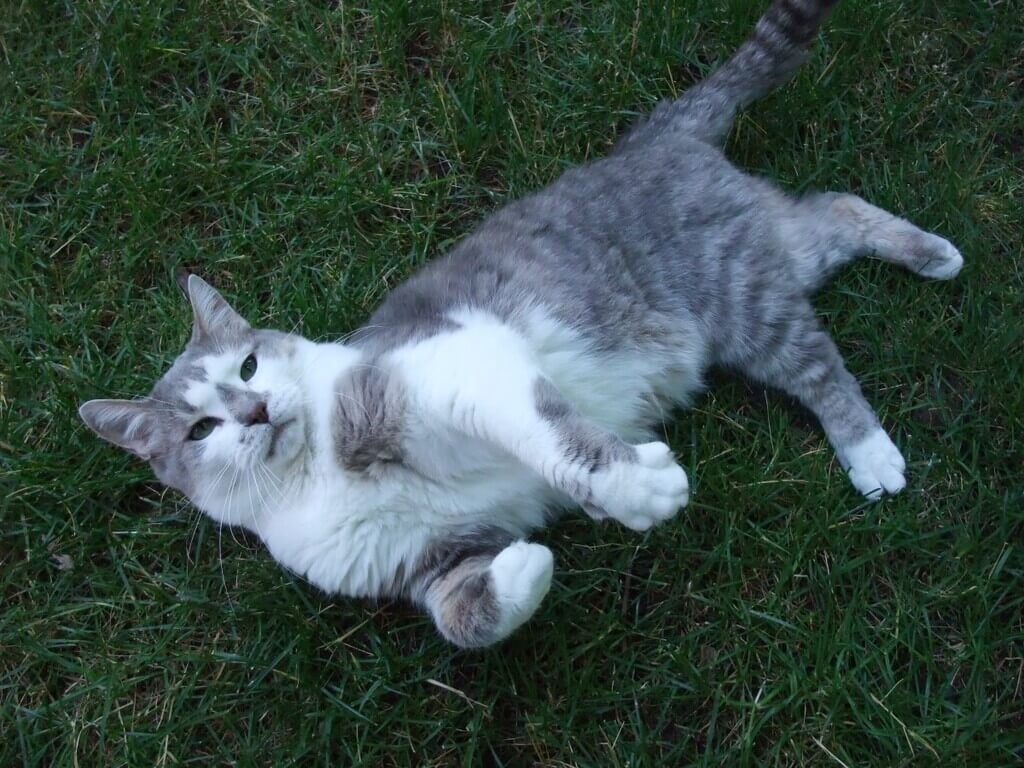
Although many forms of cancer affect humans and animals, research on how cancer develops and the exact cure for each is still ongoing.
Feline Squamous Cell Carcinoma (SCC)
Squamous cell carcinoma is a form of skin cancer that typically affects sun-exposed areas (such as the ears, nose, and eyelids) in cats residing in sunny climates. Solar-induced SCC and its development are linked to exposure to ultraviolet radiation, while oral SCC, which influences the mouth’s delicate tissues, accounts for more than 10% of all feline malignancies.
Lymphoma (Leukemia) in Cats
Lymphoma is a blood cancer type that affects white blood cells and lymphoid tissue (scattered throughout various body areas, such as the lymph nodes, bone marrow, liver, spleen, and digestive tract). The Feline Leukemia Virus (FeLV) and the Feline Immunodeficiency Virus (FIV) are associated with elevated cancer risk.
Feline Breast Cancer
In contrast to canines, which typically develop benign mammary tumors, nearly 90% of mammary tumors in cats are malignant. This way, breast cancer cells can disseminate to other organs and tissues, most notably the lungs and regional lymph nodes. The remaining 10% of benign tumors don’t propagate, thus coming with minimal health risks.
Fibrosarcoma in Cats
Fibrosarcoma is an aggressive tumor that develops from fibrous joints, tendons, and ligaments. Because it typically arises at injection sites, it is commonly called feline injection-site sarcoma (FISS). FISS is associated with injections of vaccines, antibiotics, insulin, corticosteroids, and subcutaneous fluids, among others. Quantity or injection dosage also influences the frequency of FISS.
Signs and Symptoms of Feline Cancer
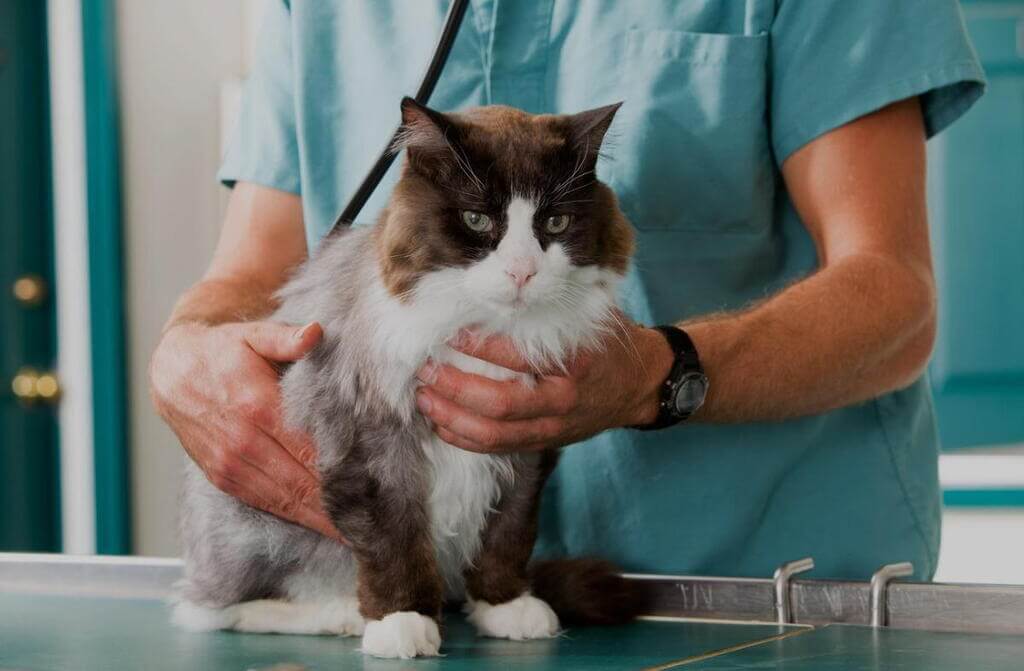
If your furry best friend exhibits any of the following signs and symptoms, you should schedule an appointment with the vet. Although different types of cancer manifest differently, and the severity may advance at different rates, here are some signs to watch out for:
- Unusual lumps and bumps
- Weight reduction
- Loss of appetite
- Vomiting and/or diarrhea
- Urination or defecation challenges
- Mouth alterations (excessive salivating, bleeding, foul odor, discolored gums)
- Difficulty swallowing
- Nosebleeds or abnormal discharge from the nostrils and/or eyes
- Breathing problems
- Chronic ulcers and delayed wound recovery
- Lameness and/or rigidity
- Swelling
- Sluggishness and loss of endurance
- Dehydration or excessive thirst
- Anemia
How Does CBD Work for Cats with Cancer?
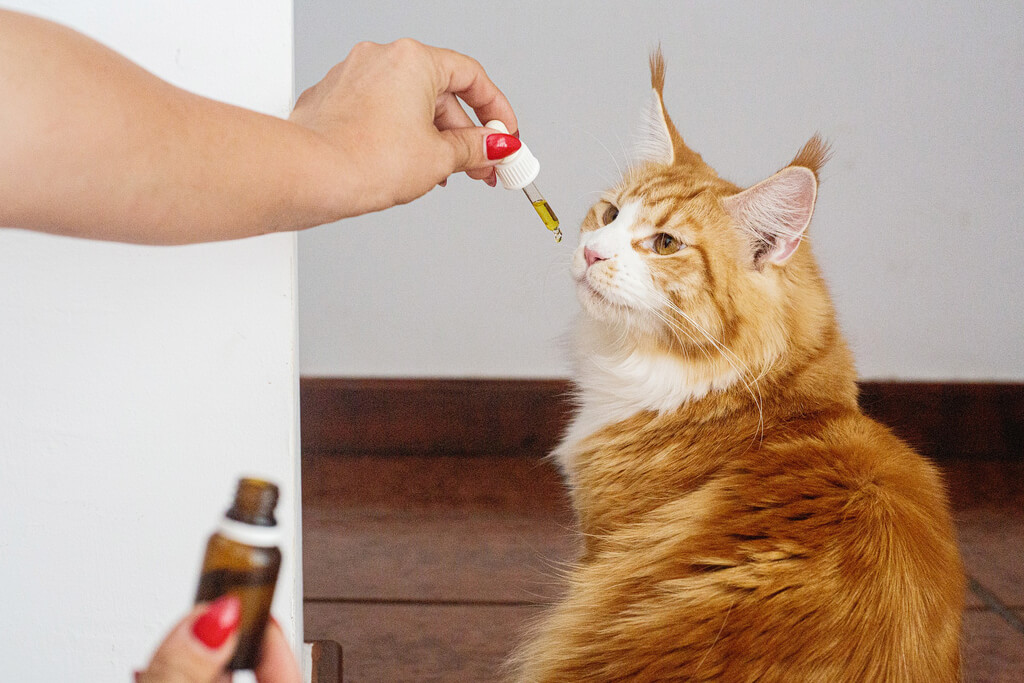
CBD works by interacting with the endocannabinoid system (ECS) in cats. To clarify matters, let’s begin by defining two essential terms: CBD and ECS. CBD, the short name for cannabidiol, is a chemical derived from the hemp variety of cannabis. Cannabinoids have long been recognized for their positive impact on human health due to their potent therapeutic characteristics.
All animals have an ECS comprising endocannabinoids, a neurotransmitter class that impacts many biological processes, including mood, fertility, pain, anxiety, appetite, inflammation, metabolism, memory, and general health and well-being.
Additionally, the system has receptors that the endocannabinoids connect to. Receptors are bodily sites to which a chemical like CBD binds to exert its effects. Two varieties of receptors in the system, CB1, and CB2, have been the subject of extensive research. CBD interacts with the ECS receptors and substitutes for the body’s endocannabinoids. CBD can alleviate cancer symptoms in animals by acting on these receptors.
How to Use CBD to Help Cats with Cancer
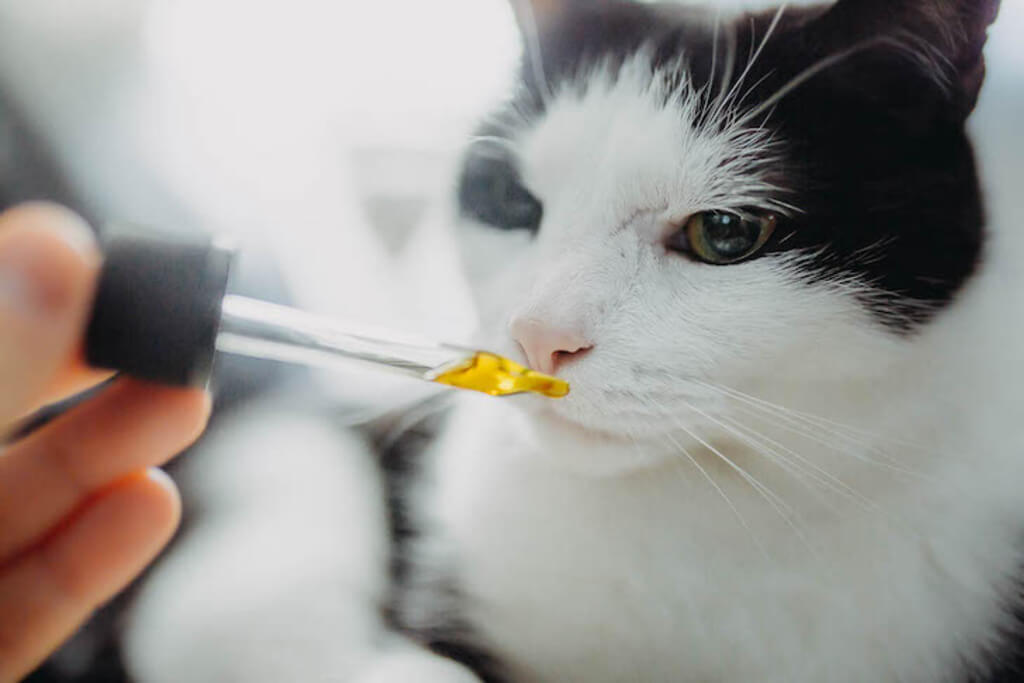
CBD products come in full-spectrum, broad-spectrum, and CBD isolate forms. Choose the best variant and dosage for your cat’s needs and verify the manufacturer’s credibility when selecting the ideal CBD product. A credible CBD manufacturer will have its products analyzed by a third-party laboratory and post the results on its website. You can opt for CBD oil and CBD-infused cat treats.
However, cats with a finicky appetite may dislike the oil’s acrid flavor. In contrast, CBD treats feature cat-friendly fragrances and are simple to administer though they require additional time to act.
The recommended daily dosage of CBD for cats is between 1 and 5 milligrams per 10 pounds of body weight. However, the precise CBD quantity will also vary based on your cat’s age, breed, and the severity of their health conditions.
When giving a supplement to your cat for the first time, it is best, to begin with a lower dose and then gradually raise it as your cat becomes accustomed to it. Recent research indicates CBD’s most common adverse effects in cats are increased lip licking and head shaking.
Benefits of CBD for Cats with Cancer
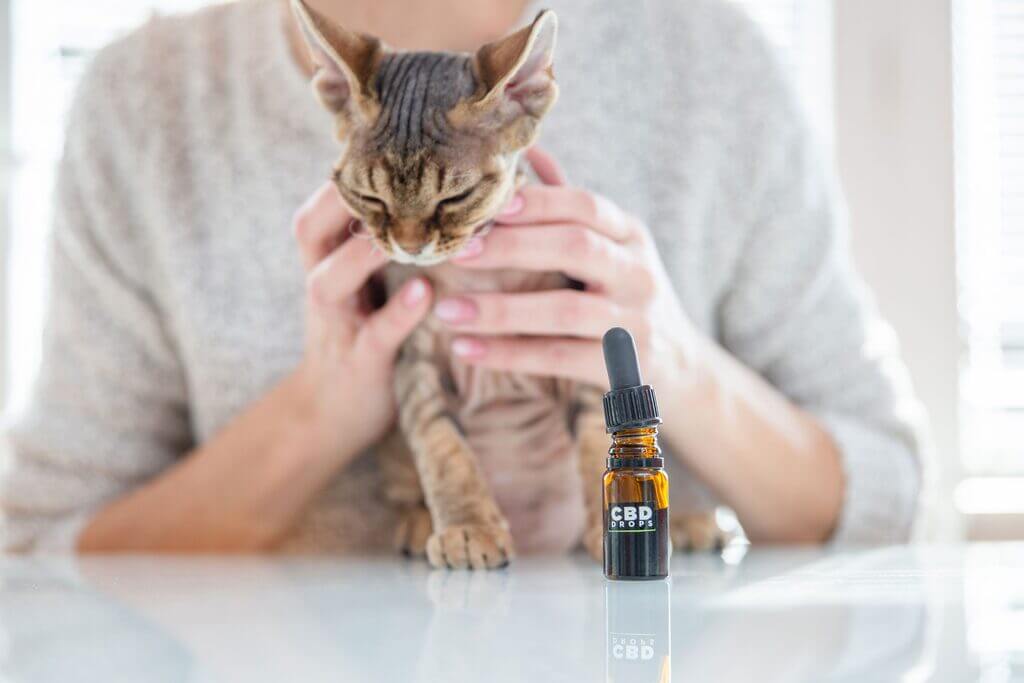
CBD for cats with cancer works differently to help your pet cope with cancer-related symptoms and effects. Here are some benefits of adding CBD to the cancer treatment regimen.
CBD Is an Effective Pain Management Agent
Cancer is commonly accompanied by chronic discomfort, which can be caused by malignancy or its treatment. In both instances, pain diminishes the quality of life and delays recovery. CBD may provide natural pain relief and boost the efficacy of conventional anti-pain medications such as opioids and NSAIDs.
CBD Decreases Inflammation
Inflammation is another prevalent companion of cancer, along with pain. CBD is commonly referred to as a “new anti-inflammatory drug” because it reduces inflammation. In addition, CBD enhances the efficacy of conventional anti-inflammatory drugs and modulates the immune system to ensure proper immune response and, consequently, a more manageable inflammatory response.
CBD Relieves Nausea and Vomiting
It can be just as challenging to manage the adverse effects of anti-cancer treatment as managing the disease. CBD may alleviate the two most common adverse effects: nausea and appetite loss. Because CBD can interact with the ECS, which is responsible for metabolism and appetite, it can treat nausea and promote regular food intake.
CBD Can Suppress Tumor Development
CBD possesses unique tumor-shrinking properties, allowing it to inhibit the growth of cancer cells. Studies also suggest that CBD can prevent the spread of tumors or block the formation of metastases. Clinical trials have demonstrated that CBD can inhibit angiogenesis (the process that allows cancerous cells to develop and spread by forming new blood vessels).
CBD May Fight Cancer Cells
According to a study on skin cancer in rodents, both healthy and cancerous cells contain endocannabinoid receptors, and targeting these receptors with CBD may trigger cells to die. It has also been established that CBD could promote apoptosis—programmed death in malignant cells—while leaving healthy ones alone.
In Summary
If you’re a pet owner looking for CBD for cats with cancer askgrowers can help you choose the best supplements to help your little furry best friend cope with the treatment. You can also access more information on CBD especially recommended dosages and administration processes. If your cat’s condition deteriorates, consult your vet for additional medical advice.
Find out more:











